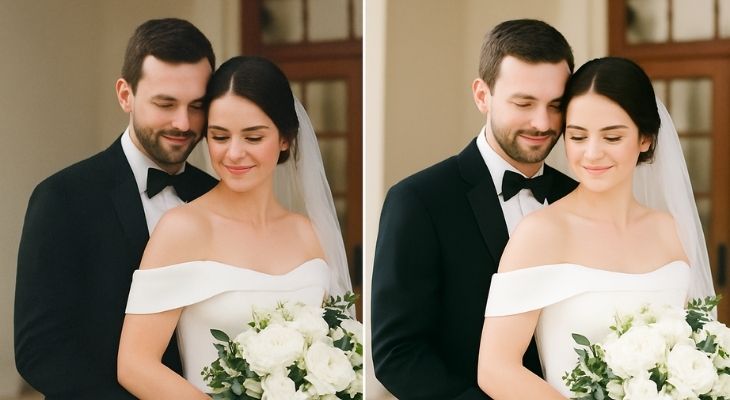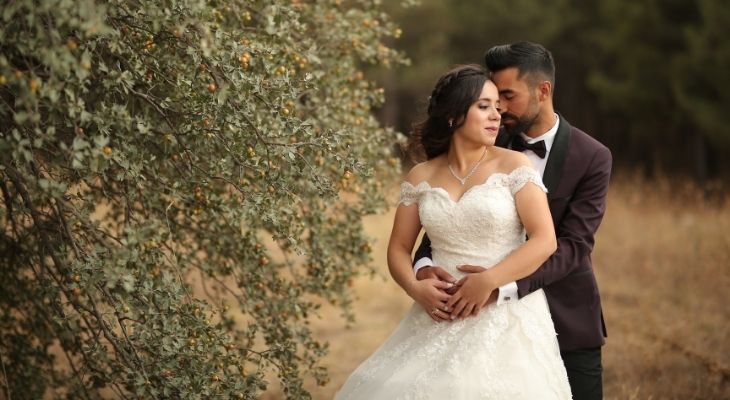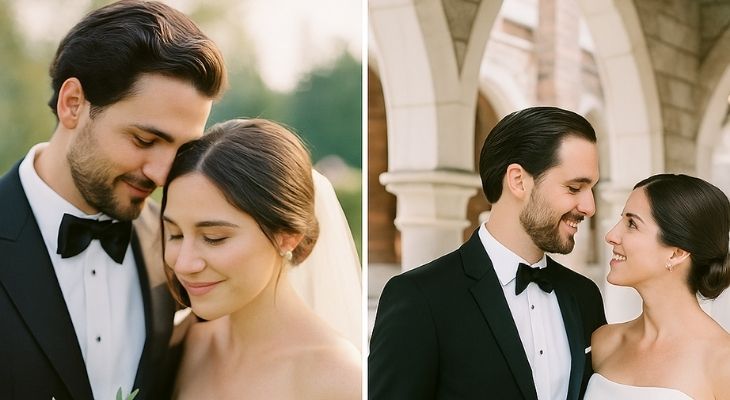
Film vs. Digital: Which Wedding Photography Style Is Right for You?
Choosing a wedding photographer is one of the most important decisions couples make when planning their big day. These are the photos you’ll look back on for the rest of your life—images that will capture the love, laughter, tears, and every special moment in between. If you’re planning a wedding in Sydney, you’re likely looking into the best wedding photography services Sydney has to offer. One of the first questions you might face when hiring a professional Sydney photographer is this: Should you go with film photography or digital?
At first, it might seem like a small detail. After all, isn’t a great photographer just a great photographer, no matter what camera they use? But as you’ll see, film and digital are two very different styles, and understanding those differences can help you pick what’s best for your special day. Let’s break it all down in a way that’s easy to understand—no tech talk, no confusing jargon—just real advice to help you make the best choice for your Sydney wedding photography experience.
What Is Film Wedding Photography?

Film wedding photography is the traditional style that was popular long before digital cameras became mainstream. It uses actual rolls of film that need to be developed in a lab after the event. This means you won’t see your photos instantly, but many couples love the dreamy, timeless results that film provides.
One of the things that makes film so special is how it captures light and color. Film photography often delivers soft, romantic tones that feel elegant and natural. Skin tones appear warm, and there’s a glowing quality to the images that digital sometimes lacks. The imperfections in film, like grain or slight overexposure, can actually enhance the mood, making every frame feel more emotional and nostalgic.
Film photographers also tend to shoot more intentionally. Since each roll of film has a limited number of exposures, every shot is carefully composed and framed. This often results in fewer photos, but each one feels more thoughtful and artfully captured.
Why couples love film wedding photography:
- A soft, nostalgic, and romantic feel.
- Natural-looking colors and beautiful light.
- A slower, more intentional shooting style.
- Elegant and timeless images perfect for luxury weddings.
- An artistic, editorial quality that looks beautiful in albums and prints.
Film wedding photography is often used by photographers who have a fine-art approach. These are professionals who consider every photo like a painting, carefully composed and deeply expressive.
What Is Digital Wedding Photography?

Digital wedding photography is the most popular and modern way to capture wedding memories today. It uses digital cameras that store photos on memory cards. The biggest difference from film? You can instantly preview the photos right after they’re taken, which makes it incredibly convenient.
Digital cameras allow photographers to take hundreds—even thousands—of photos throughout the day without pausing to reload film. This is great for fast-paced weddings where so many moments are happening all at once. From candid laughter with guests to spontaneous dances on the floor, a digital camera can capture it all in real time.
One major benefit is that digital cameras are very adaptable. Whether your wedding is indoors, outdoors, at sunset, in a dimly lit church, or under fairy lights at your reception, a skilled digital photographer can make it work beautifully.
To sum up, digital wedding photography is great because:
- You get instant previews and quicker turnaround times
- It’s flexible and works well in any lighting condition
- You receive more photos overall
- Editing options allow for enhancements, filters, and corrections
- It’s the most widely available and cost-effective option today
Digital is also ideal if you’re planning a destination wedding or a multi-day event, where sheer quantity and adaptability matter.
How Are Film and Digital Different?

Let’s look at how they stack up against each other in a few key areas.
1. The Look and Feel
- Film: Film photography delivers a soft, dreamy aesthetic that evokes emotion and nostalgia. The color tones tend to be warm and creamy, and natural adds a vintage charm. Skin tones look more organic, and the lighting appears more diffused. It’s a popular choice for those wanting fine-art, romantic wedding albums with a timeless finish.
- Digital: Digital photos are sharper and more vibrant, with true-to-life colors and crisp detail. This style provides high-definition clarity, perfect for capturing all the little details in a modern wedding. Images appear clean, polished, and often more dynamic, making digital ideal for couples who love bold aesthetics and want every moment vividly preserved.
Which is better?
It depends entirely on your preference. If you dream of soft, artistic images, go with film. If you lean toward sharp, vibrant, and detailed memories, digital will likely suit you better.
2. Editing and Flexibility
- Film: Film is much more limited when it comes to post-processing. Most of the image’s beauty is captured in-camera, requiring the photographer to have a skilled eye for lighting and composition. Small twists or pulls are possible after scanning the film, but heavy editing or retouching is not a problem. What you see is often what you get.
- Digital: Digital photography offers immense flexibility in editing. From correcting exposure and adjusting skin tones to removing distractions and enhancing color vibrancy, the options are nearly endless. This is perfect for couples who want more control over how their photos turn out or need tweaks to match a specific style or wedding theme.
Which is better?
Digital wins for flexibility. If you want flawless photos or custom edits, digital gives you more options. But if you prefer a more natural, minimally edited aesthetic, film captures the moment beautifully on its own.
3. Lighting Conditions
- Film: Film: Film loves natural light—sunny gardens, open-air chapels, or softly lit indoor venues are where it shines. However, it can struggle in low-light settings, like evening receptions or candlelit spaces, unless the photographer uses a flash or supplementary lighting. If you’re still unsure whether your venue will work well with your photography style, reading about how different venues like beaches versus city settings affect your wedding day can help.
- Digital: Digital cameras are highly adaptable in various lighting conditions. From bright outdoor ceremonies to dim indoor receptions, they adjust quickly and effectively. Modern sensors allow photographers to shoot in low light without losing quality or needing a flash. This makes digital ideal for full-day coverage without worrying about the lighting setup.
For more details, explore Beach vs City: Which Sydney Wedding Venue Style Suits You to gain more clarity on how your wedding venue and photography style work together.
Which is better?
Digital is generally more reliable in diverse lighting situations, making it safer for weddings with changing environments. If you’re planning a daytime wedding outdoors, film could still be a lovely choice.
4. Cost
- Film: Film photography usually comes with a higher price tag. Each roll of film has a cost, and development fees add up. Film photographers also spend more time composing shots and editing scanned images. Plus, fewer professionals specialize in film, especially in areas like regional Sydney, so availability and demand may push the cost up.
- Digital: Digital photography tends to be more budget-friendly. Once the camera gear is set up, there are no ongoing costs per shot, allowing photographers to shoot freely. Post-production is streamlined with digital files, and photographers can offer faster turnaround times, which can also reduce overall pricing for the couple.
Which is better?
Digital is typically the better option if you’re trying to stay within budget. If you’re drawn to the beauty of film and have the flexibility to spend more, the artistic value may be worth the investment.
5. The Experience
- Film: Film photographers often shoot with more intention. Since each shot counts, they take time to frame and capture meaningful moments, resulting in a relaxed and artistic experience. This slower pace allows couples to be more present, often leading to beautifully authentic and candid shots that reflect real emotions and connection.
- Digital: Digital photographers can work fast and fluidly, capturing spontaneous moments as they unfold. From laughter during speeches to wild dance floor shots, they won’t miss a thing. This is great for couples who want comprehensive coverage and lots of options when reviewing their final gallery.
Which is better?
Film is ideal for a calm, curated experience with artistic flair. Digital is better if you want a wide variety of shots and don’t want to miss a single second, from posed portraits to the last dance.
Can You Mix Both?
Absolutely! Some photographers offer hybrid photography, meaning they use both film and digital throughout your wedding day. This approach combines the timeless, romantic feel of film with the flexibility and speed of digital.
For example, you may see your photographer use film for elegant portraits or romantic shots, capturing those intimate, classic moments. Meanwhile, digital photography would be perfect for fast-paced moments like the ceremony or reception, where quick reactions are essential to catching every fleeting moment.
If you’re unsure which style is right for you, consider opting for a hybrid approach. It offers the best of both worlds, delivering both artistic, timeless images and modern, versatile coverage. To plan your wedding day timeline with your photography preferences in mind, Sydney Wedding Timeline is an excellent resource that can guide you in organizing everything from your ceremony to photo sessions, ensuring your photographer knows when and where to capture those special moments.
Questions to Ask Your Photographer
Before you book, ask your wedding photographer the following:
- Do you shoot film, digital, or both?
- Can I see full galleries from past weddings you’ve done?
- How do you handle low-light situations?
- How many photos will we receive, and how are they delivered?
- How long will it take to get our photos back?
- Do you do any editing or retouching?
- How do you back up our images?
- Can we customize the photography style to match our vision?
These questions will help you understand their style and make sure their approach matches what you’re looking for.
Final Thoughts
So, film vs. digital—which one is right for you? If you dream of soft, romantic images with a timeless quality and don’t mind spending a little more, film photography could be your perfect match. If you want modern, flexible, and high-quality images that work in any setting and don’t break the bank, digital photography might be a better choice. And if you can’t decide? Go hybrid! Let your wedding photographer in Sydney blend the best of both worlds so you get elegance and versatility.
Whatever you choose, remember that the most important thing isn’t the camera—it’s the person behind it. Pick a photographer who makes you feel comfortable, understands your vision, and is just as excited about your day as you are. Your wedding photos will last a lifetime. Make sure they reflect your style, your love story, and your beautiful day, just the way you want it.